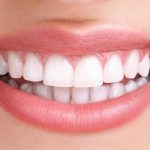Why Is My Baby Grinding His Teeth? Understanding the Causes and Solutions
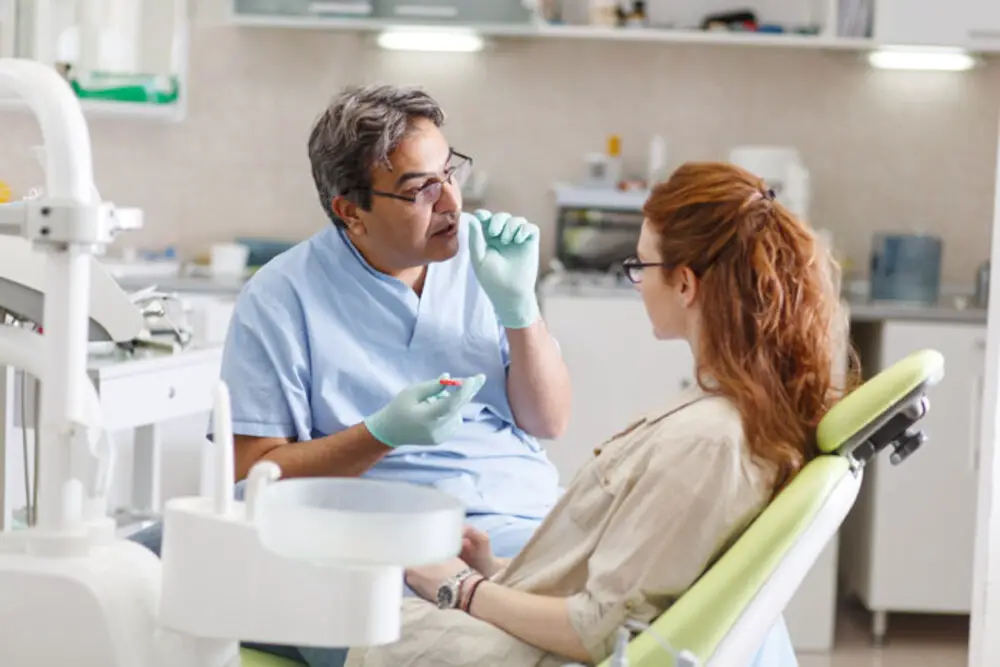
Teeth grinding, also known as bruxism, is a common concern among parents of young children. Many parents wonder why their baby is grinding their teeth and if it is a cause for concern. Teeth grinding in babies can be attributed to a variety of reasons, ranging from teething to stress. As a parent, it’s important to understand the causes and solutions to this issue to ensure your baby’s oral health and overall well-being. Teeth grinding in babies can be a concerning issue for parents, as it can lead to dental problems and discomfort for the child. However, it’s important to note that teeth grinding is a common occurrence in infants and young children, and in most cases, it is not a cause for concern. Understanding the causes and solutions to this issue can help parents take the necessary steps to alleviate their child’s discomfort and prevent any potential dental problems in the future. In this article, we will explore the various causes of teeth grinding in babies and provide effective solutions to help ease the discomfort.
Teeth grinding, also known as bruxism, is a common condition where a person involuntarily grinds, gnashes, or clenches their teeth while sleeping or awake. This condition can lead to dental problems, jaw disorders, headaches, and earaches. Teeth grinding can be caused by stress, anxiety, sleep disorders, crooked teeth, an abnormal bite, or the use of certain medications. While teeth grinding is more common in children, it can also affect adults. It is important to seek treatment for teeth grinding to prevent further damage to the teeth and jaw and to improve overall oral health.
Frequency in babies is a common occurrence, and it is often a sign of normal development. Babies grind their teeth for various reasons, such as teething, jaw alignment, and the growth of new teeth. However, frequent and prolonged grinding can cause damage to your baby’s teeth and jaw. This habit can also be caused by stress or anxiety, and it is essential to speak to an experienced pediatric dentist if you notice that your baby grinds their teeth excessively. Some solutions to this problem include providing your baby with a pacifier or teething toy, soothing them before bedtime, and scheduling regular visits with a dentist to monitor the situation. Understanding the causes and solutions of your baby’s teeth grinding can help you take the necessary steps to ensure their oral health.
It is essential to understand the causes and solutions of your baby’s teeth grinding, as it can have significant impacts on their dental and overall health. Persistent teeth grinding can lead to tooth damage, jaw pain, headaches, and even sleep disturbances. It is crucial to identify the underlying causes of this behavior, which can range from teething to stress or anxiety. Once the cause is determined, parents can take proactive steps to address the issue. Simple solutions, such as providing a warm bath or massage before bedtime, can help relax the child and reduce teeth grinding. More severe cases may require a dental evaluation or behavioral therapy. By understanding the causes and solutions, parents can help their child overcome this habit and ensure their long-term dental and overall health.
Normal Developmental Stage
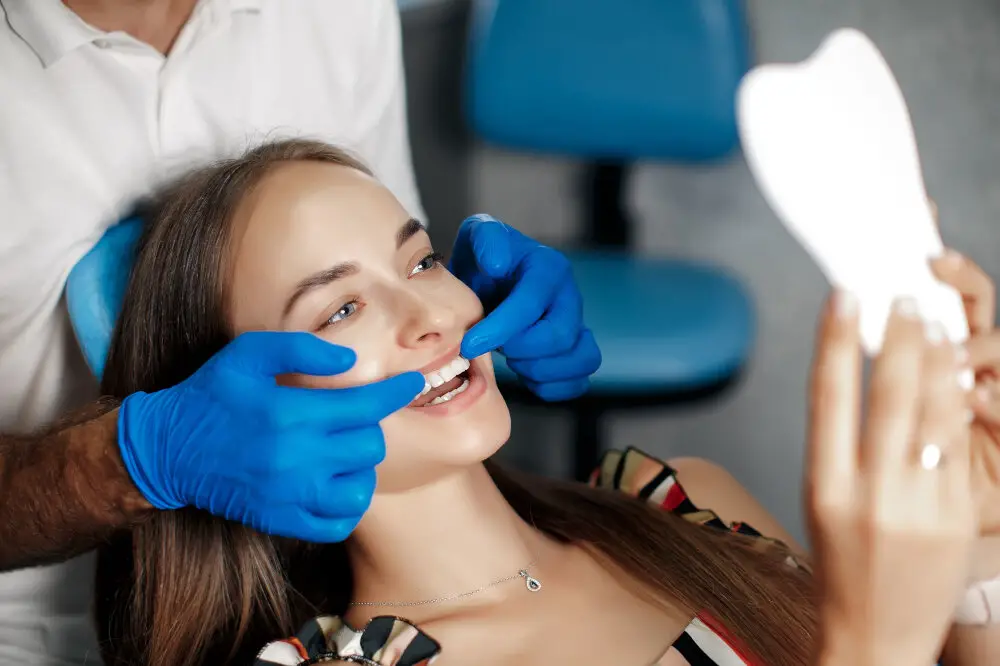
Babies go through a series of normal developmental stages in their first few years of life. One of these stages is the emergence of their baby teeth. Typically, a baby’s first tooth will appear between four and seven months of age, with their full set of 20 primary teeth appearing by their third birthday. During this time, babies may experience discomfort and pain as their teeth emerge through the gums. This can lead to fussy behavior, drooling, and a desire to chew on objects. Tooth grinding, or bruxism, can also occur during this time as babies explore their new teeth and sensations. Another normal developmental stage for babies is the exploration of their environment with their mouth. Babies use their mouths to learn about the world around them, including the texture, taste, and feel of objects. This can lead to behaviors such as putting toys and other objects in their mouths and chewing on things. While this behavior can be concerning for parents, it is a normal part of a baby’s development and should not be a cause for alarm. However, it is important for parents to provide safe and appropriate objects for their babies to explore, such as teething rings or soft toys, to prevent choking hazards.
The normal developmental stage for teeth grinding, also known as bruxism, varies depending on the age of the child. Infants and toddlers may grind their teeth as they are teething or discovering new sensations in their mouths. This is typically not a cause for concern and will often resolve on its own. Children between the ages of 3 and 6 may also experience bruxism as their baby teeth fall out and permanent teeth grow in. This is also considered a normal developmental stage, but parents should monitor the frequency and intensity of the grinding to ensure it does not cause damage to the teeth or jaw. By adolescence, most children have outgrown the habit of teeth grinding, but some may continue to do so if they are under stress or experiencing anxiety.
Understanding the normal developmental stages of babies is important for parents to determine if their child’s behavior is typical or not. For instance, teeth grinding is a common issue among babies and children, especially during their developmental stages. Normally, babies begin to develop teeth between 4-7 months old, and by the age of 2-3 years old, they should have a full set of baby teeth. During this time, it’s not unusual for babies to grind their teeth due to the discomfort of teething. Parents should monitor their child’s teeth grinding behavior and consult a pediatrician if it persists after the teething stage or is accompanied by other symptoms like pain or sensitivity.
Teeth grinding, medically known as bruxism, is a common habit in children, especially during their developmental years. Although the sound of teeth grinding can be alarming and may cause parents to worry, it is generally considered a normal part of a child’s development. However, parents should still keep an eye out for certain signs to ensure that teeth grinding is not causing any harm to their child’s teeth or jaw. These signs include tooth sensitivity, jaw pain or stiffness, worn-down teeth, and headaches upon waking up. If any of these signs are present, it is important to consult a dentist or pediatrician to determine the cause and appropriate treatment.
Stress and Anxiety
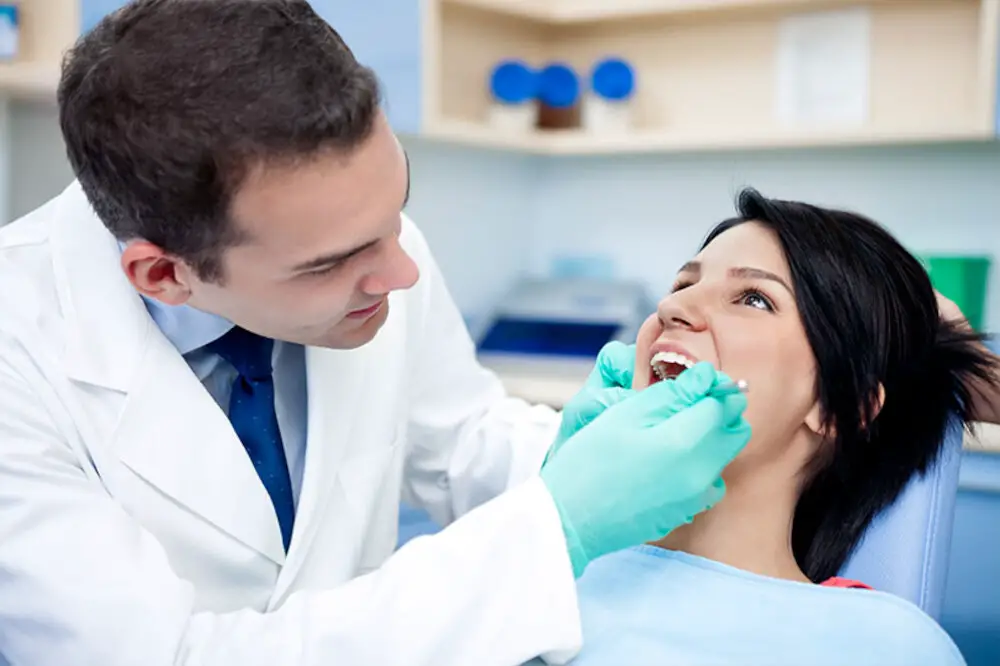
Stress and anxiety are some of the common causes of teeth grinding in babies. Babies can experience stress and anxiety due to several factors, including changes in their environment, routine, or family dynamics. For instance, if a baby is starting daycare or preschool, they may feel anxious about being away from their parents. Similarly, if a baby has recently had a new sibling, they may feel stressed about sharing their parents’ attention. Other factors that can cause stress and anxiety in babies include illness, teething, and developmental changes, among others. In most cases, teeth grinding due to stress and anxiety is temporary and stops once the underlying cause is resolved. However, if the habit persists, it can lead to dental problems such as enamel wear, tooth sensitivity, and jaw pain. As a parent, it is essential to recognize the signs of stress and anxiety in your baby and take appropriate measures to alleviate them. Some of the signs to watch out for include irritability, clinginess, changes in sleep patterns, and loss of appetite. To help your baby manage stress and anxiety, you can establish a consistent routine, provide a soothing environment, and offer plenty of physical affection and reassurance. Additionally, you can introduce relaxation techniques such as infant massage or gentle music to help your baby relax. If you are concerned about your baby’s teeth grinding, it is essential to consult a pediatric dentist for proper diagnosis and treatment.
Stress and anxiety are two common emotions experienced by babies that can result in teeth grinding. Stress in babies can be caused by a variety of factors, including changes in routine, separation from parents or caregivers, or exposure to loud noises. Anxiety, on the other hand, can be linked to feelings of fear or uncertainty, such as meeting new people or being in unfamiliar environments. It is important for parents to recognize the signs of stress and anxiety in their babies in order to provide appropriate support and minimize the risk of teeth grinding and other associated behaviors.
Stress and anxiety can affect babies in many ways, including teeth grinding. Some common causes of stress and anxiety in babies include changes in routine, separation anxiety, teething, illness, and overstimulation. For example, if a baby’s sleep routine is disrupted or if they are separated from their primary caregiver, they may experience stress and anxiety. Teething can also cause discomfort and pain, leading to stress and anxiety. Illness can also be a source of stress and anxiety for babies, as they may be in pain or uncomfortable. Overstimulation, such as loud noises or bright lights, can also cause stress and anxiety in babies. Understanding the causes of stress and anxiety in babies can help parents identify the source of their baby’s teeth grinding and implement appropriate solutions.
Stress and anxiety are two of the most common causes of teeth grinding, a condition also known as bruxism. When we experience high levels of stress or anxiety, our bodies produce cortisol, a hormone that causes us to clench our muscles. This includes the muscles in our jaw, which can lead to grinding our teeth unconsciously, especially during sleep. Over time, this can cause damage to the teeth, jaw pain, and headaches. Additionally, people who suffer from anxiety may also experience teeth grinding as a physical manifestation of their anxiety, as they may find themselves clenching their jaw or grinding their teeth during times of stress. To prevent teeth grinding caused by stress and anxiety, it is essential to manage and reduce stress levels through relaxation techniques such as meditation, exercise, and therapy.
Stress and anxiety can affect babies just as much as adults, but they may not have the ability to express their emotions in the same way. Some solutions for reducing stress and anxiety in babies include creating a calm and predictable environment, providing plenty of physical affection and soothing touch, establishing a consistent routine, and ensuring that the baby is well-fed and well-rested. It’s also important to pay attention to the baby’s cues and respond to their needs promptly. If a baby is grinding their teeth, it could be a sign of stress or anxiety, and addressing the underlying cause can help to reduce this behavior.
Dental Problems

Dental problems are a common occurrence in both children and adults. Some of the most common dental problems include tooth decay, gum disease, and teeth grinding. Tooth decay is caused by the buildup of plaque on the teeth, which can lead to cavities and other dental problems. Gum disease is caused by the buildup of bacteria in the mouth, which can lead to inflammation and bleeding of the gums. Teeth grinding, also known as bruxism, is a condition in which a person grinds or clenches their teeth, often during sleep. This can lead to dental problems such as worn-down teeth, jaw pain, and headaches. To prevent dental problems, it is important to maintain good oral hygiene habits, such as brushing and flossing regularly. Eating a healthy diet that is low in sugar and avoiding tobacco products can also help to prevent dental problems. If you or your child are experiencing dental problems, it is important to visit a dentist as soon as possible. A dentist can diagnose and treat dental problems, as well as provide advice on how to prevent future problems. With proper care and treatment, most dental problems can be prevented or treated, allowing you to maintain a healthy and beautiful smile for years to come.
Dental problems in babies refer to any issue or condition that affects the teeth, gums, or mouth of infants. The most common dental problems in babies include tooth decay, teething discomfort, gum disease, and teeth grinding. Tooth decay occurs when bacteria in the mouth produce acid that erodes the tooth enamel, leading to cavities. Teething discomfort is common in infants when their teeth start to emerge and can cause pain, swelling, and irritability. Gum disease is an inflammation of the gums caused by bacterial infection and can lead to tooth loss if left untreated. Teeth grinding in babies can be a sign of stress or an underlying medical condition and can cause tooth damage if not addressed. Therefore, it is essential for parents to monitor their baby’s dental health and take preventive measures to avoid dental problems.
Teeth grinding, also known as bruxism, is a common dental problem that affects both adults and children. There are several types of dental problems that can cause teeth grinding, including misaligned teeth, crooked teeth, and missing teeth. When the teeth are not properly aligned, they can rub against each other, causing friction and leading to bruxism. Similarly, if a child has crooked or missing teeth, they may grind their teeth unconsciously in an attempt to find a comfortable bite. Other factors that can contribute to bruxism include stress, anxiety, and sleep disorders. Identifying and treating the underlying dental problem is essential in order to prevent further damage to the teeth and alleviate teeth grinding symptoms.
Dental problems can manifest in a variety of ways, and it is important to be aware of the signs in order to address them promptly. One of the most common signs of dental problems is tooth pain or sensitivity. This may be caused by tooth decay, gum disease, or a cracked or damaged tooth. Another sign of dental problems is bleeding or swollen gums, which may indicate gum disease. In addition, tooth discoloration or visible decay may be a sign of dental problems. If you notice any of these signs in your child, it is important to schedule an appointment with a dentist as soon as possible to determine the cause and receive appropriate treatment.
Dental problems can be a concern for babies and their parents. However, there are several solutions to address these issues. Regular dental check-ups with a pediatric dentist can help identify and prevent any potential problems. Proper oral hygiene, including brushing baby teeth with a soft-bristled brush and using fluoride toothpaste, can also help prevent tooth decay. Additionally, avoiding sugary foods and drinks and encouraging a balanced diet can help promote healthy teeth and gums. For babies who grind their teeth, providing a comfortable and soothing sleep environment, addressing any underlying stress or anxiety, and using a mouth guard can help reduce the habit. By taking proactive steps to address dental problems in babies, parents can help ensure their child’s oral health and overall well-being.
Other Health Conditions
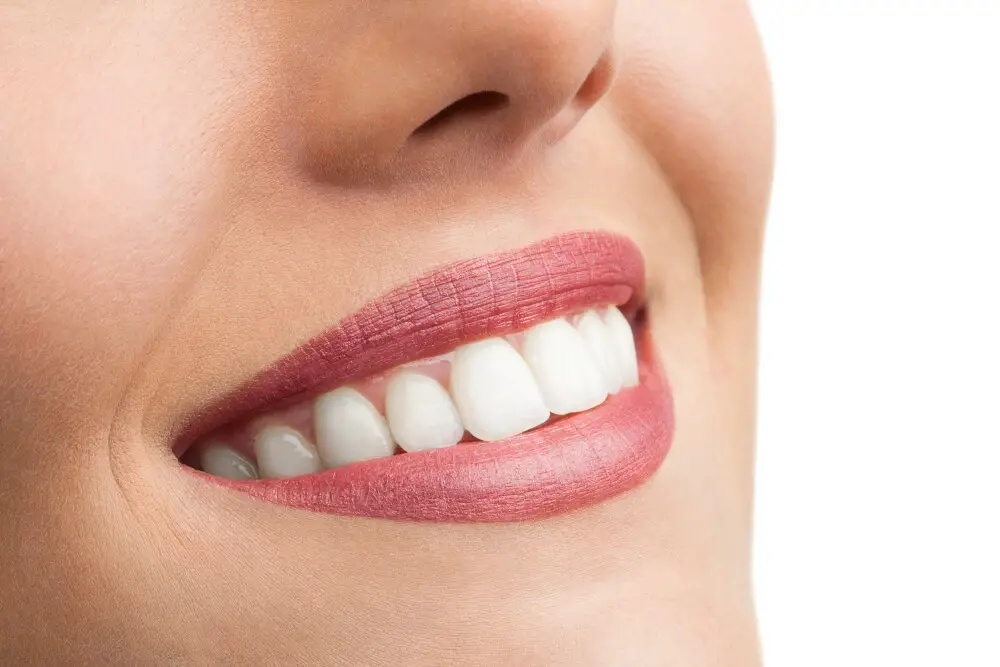
Other health conditions that may contribute to teeth grinding in babies include allergies, ear infections, and gastrointestinal problems. Allergies can cause nasal congestion and sinus pressure, which can lead to jaw clenching and teeth grinding. Ear infections can cause pain and discomfort in the jaw and ear area, leading to teeth grinding as a way to alleviate the discomfort. Gastrointestinal problems such as acid reflux can also cause discomfort in the jaw and throat area, leading to teeth grinding. Additionally, neurological conditions such as cerebral palsy and autism spectrum disorder have also been linked to teeth grinding in babies. These conditions can affect the muscles and nerves in the face and jaw, leading to involuntary teeth grinding. It is important to consult a pediatrician if you suspect that your baby may have an underlying health condition that is contributing to their teeth grinding, as proper diagnosis and treatment can help alleviate the symptoms.
Teeth grinding, or bruxism, can be caused by a variety of other health conditions beyond just dental issues. For example, obstructive sleep apnea, which causes breathing difficulties during sleep, can lead to teeth grinding as the body tries to keep the airway open. Anxiety and stress can also contribute to teeth grinding, as the body responds to tension by clenching the jaw and grinding the teeth. Additionally, certain medications and substances like caffeine and alcohol can cause bruxism as a side effect. It’s important to consider these other health conditions when trying to understand and address teeth grinding in both babies and adults.
Teeth grinding, or bruxism, is a common dental problem that affects people of all ages. Although it can be caused by stress, anxiety, and certain medications, it can also be a symptom of an underlying health condition. For instance, sleep apnea, a disorder that causes breathing interruptions during sleep, has been linked to teeth grinding. Similarly, gastroesophageal reflux disease (GERD) can also cause bruxism, as the acid reflux irritates the lining of the esophagus and affects the muscles of the jaw. Other health conditions that can cause teeth grinding include Huntington’s disease, Parkinson’s disease, and epilepsy. If you suspect that your baby’s teeth grinding is due to an underlying health condition, it’s important to consult with a doctor or dentist to get a proper diagnosis and treatment.
While teeth grinding is a common issue in babies, it can also be a sign of other health conditions. For instance, sleep apnea, which is a sleep disorder characterized by breathing pauses and snoring, can result in teeth grinding. Additionally, gastroesophageal reflux disease (GERD), a digestive disorder that causes stomach acid to flow into the esophagus, can also lead to teeth grinding. Finally, children who have experienced trauma or stress, such as a divorce or death in the family, may grind their teeth as a way to cope. It is important to pay attention to any other symptoms your baby may be experiencing and consult your pediatrician if you suspect an underlying health condition.
In addition to teeth grinding, babies can experience a range of other health conditions that require attention and care. One of the most important solutions for addressing these conditions is regular check-ups with a pediatrician or other healthcare provider. This can help to identify any potential issues early on and ensure that appropriate treatment is provided as soon as possible. Other solutions may include following a healthy diet and exercise routine, getting plenty of sleep and rest, and taking steps to reduce stress and anxiety in the home environment. By taking these steps, parents and caregivers can help to promote the overall health and well-being of their baby, and ensure that they grow up strong and healthy.
Teeth grinding in babies is a common phenomenon that can be caused by a variety of factors. One of the most common causes is teething, as the process can be uncomfortable for babies and cause them to grind their teeth as a way of easing the discomfort. Stress and anxiety are also frequent culprits of teeth grinding, as babies may feel overwhelmed by new experiences or changes in their environment. Other potential causes include airway obstruction, neurological disorders, and a misaligned bite. It is important to identify the root cause of teeth grinding in babies in order to determine the appropriate solution and prevent any potential dental problems from arising.
It is crucial to seek professional help if teeth grinding persists in babies. Although teeth grinding is quite common in babies and usually goes away on its own, it can indicate an underlying medical condition if it persists. Teeth grinding can lead to dental problems, jaw pain, and discomfort. A dentist can examine the baby’s teeth and jaw to determine the cause of teeth grinding and recommend appropriate treatment. Seeking professional help can prevent further damage and ensure that the baby receives the necessary treatment to alleviate any pain or discomfort associated with teeth grinding. It is always better to be safe than sorry when it comes to the dental health of your baby.
Teeth grinding in babies is a common issue that can cause discomfort and pain. Fortunately, there are several things that parents can do to help prevent teeth grinding in their little ones. Firstly, it’s important to ensure that your baby is getting enough sleep as fatigue can lead to teeth grinding. Secondly, try to reduce your baby’s stress levels by creating a calm and relaxing environment at home. Additionally, avoid giving your baby foods or drinks that contain caffeine as this can exacerbate teeth grinding. Finally, make sure that your baby’s teeth and gums are healthy by taking them for regular dental check-ups. By following these tips, parents can help prevent teeth grinding in their babies and promote good oral health overall.
Conclusion

In conclusion, understanding why your baby is grinding his teeth is essential in finding effective solutions. While teeth grinding can be a natural part of a baby’s development, it can also be a sign of underlying issues such as teething, stress, or misaligned teeth. As a parent, it’s important to be attentive to your baby’s behavior and seek professional advice if you suspect there is an underlying issue. Some solutions to teeth grinding include providing a teething toy, practicing relaxation techniques, and visiting a dentist if necessary. By taking proactive measures to address teeth grinding, you can help your baby maintain healthy teeth and a peaceful sleep.





